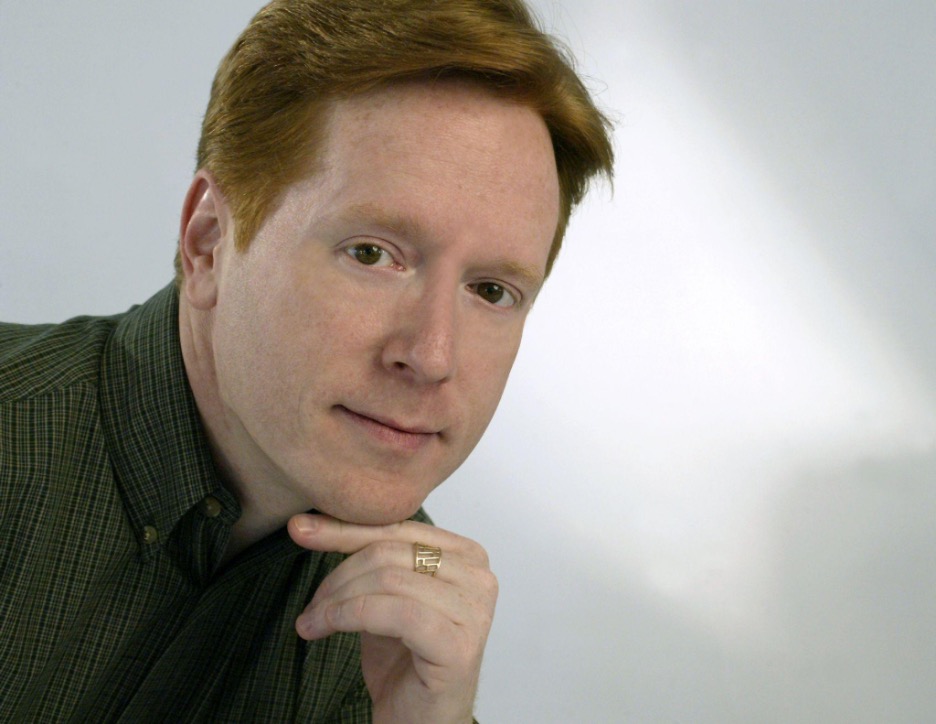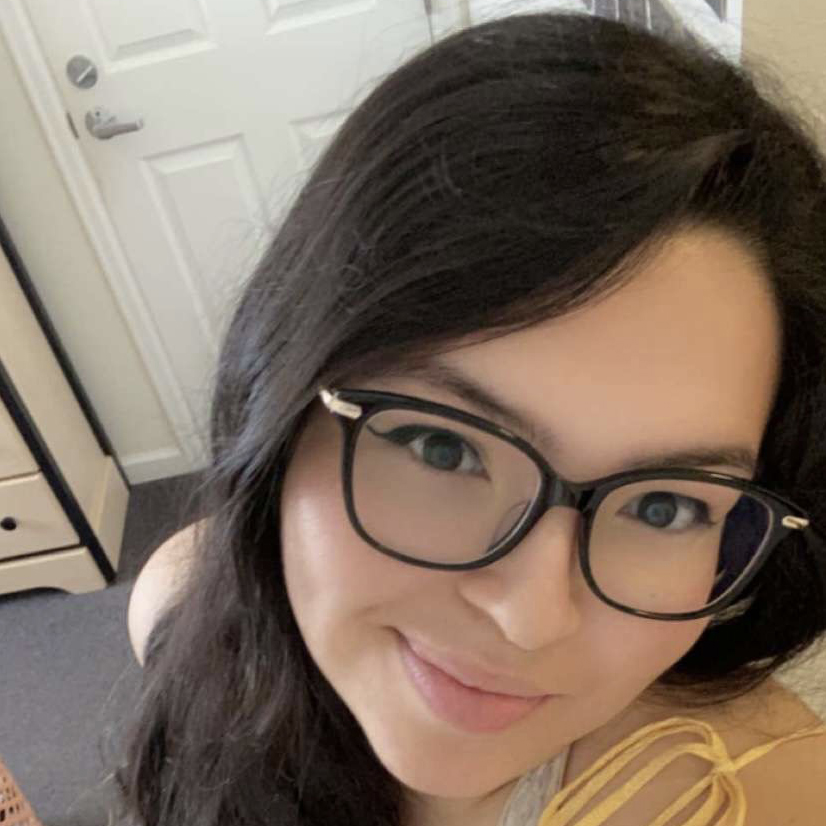
Brian Luedloff director of Opera Theatre at UNC talks about what is opera, the difference between opera and musical theatre, how he decided to become an opera expert, his most recent project and the myth of the shattered glass. (Running time 17:29)
Transcript:
Katie: Hey everyone, welcome back to this week's episode of The Bear in Mind Podcast. I'm your host, Katie Nord. Let's get started. Music has played a large part in my life, and I'm sure it has for a lot of us. I've used music as a form of self-expression, a way to relax, a conversation starter. Nearly anything I do can be tied back to music. Personally, I'm a big fan of indie music, alternative, even osts from video games. But you know what music I don't know a lot about? Opera. That's why I've brought in Professor Brian Luedloff today to talk about all things opera, theater, and more. Thank you for joining me today.
Brian: Thanks for having me, Katie.
Katie: It is such a pleasure. Firstly, I'll just have you introduce yourself real quick. I'd love to know a little bit about your position here at UNC, how long you've been in the arts and anything else you'd like us to know.
Brian: Sure. Well, my name is Brian Clay Luedloff. I'm the director of Opera Theater here at UNC. I'm in my 19th year here. I can't believe it.
Katie: Wow!
Brian: And I came here from a background most immediately in professional opera, freelancing as a director, mostly around North America and prior to that, 15 years as an actor. So I kind of come to opera from the theater side of the equation. Although I do have degrees in music.
Katie: That's really cool. How were you introduced to opera? Were you introduced to it as a kid, or did you have any relatives who were in it, or was it more later in life?
Brian: Opera was kind of all that was left to me because my father, who was a musician, studied classical music and played both classical and jazz big band. My mother only listened to country and western music, and my older brother was somewhere in the generation between The Beatles and The Carpenters. So opera was kind of all that was left. I kind of stumbled on it accidentally when there was a Saturday morning broadcast on the radio, and every Saturday afternoon they play a different opera live from a live performance in New York City. And I literally just stumbled on it and I was already singing a little bit. I heard these voices, but it was a language I didn't know, and it was a different style of singing. I didn't know anything about it, but it was kind of fascinating. I was kind of a secret opera lover for a long time. The first opera I ever saw was not very good, honestly. It was a touring production of a wonderful opera by Offenbach, The Tales of Hoffmann. It was a touring production. The sets, I swear to God, were made out of cardboard and, you know, one would tip over in the middle of a scene, but the singing was pretty good, so I was hooked.
Katie: That's a theater kid's nightmare having your set fall apart in the middle of the show.
Brian: Oh my god. Yeah.
Katie: Ooh. For someone like me who doesn't know too much about opera, how would you describe the genre?
Brian: I often tell my undergraduate students, especially who for many of them, this is their first experience in an opera. For many of them, the first opera they see is the one they're in, and I always try to remind them that opera, like musical theater, is a good story, told in great music with grand singing, and it's that last one that kind of makes the difference for me between opera and musical theater. I tend to think of them synonymously from the theatrical standpoint, but the singing is a little different, just different requirements as musical theater has different requirements, and I think it's less intimidating if you just break it down to its component parts of acting and singing and moving and sometimes dancing and all the same things you would do in a musical.
Katie: Yeah, from the perspective of someone who knows very little about opera, I always felt like I wasn't regal enough to watch it. It feels so fancy, and I watched one when I was younger. I don't remember what show it was though, but I remember the singer's voice was so powerful I felt my bones rattling.
Brian: And when you hear opera singers live, a good singer can do that. It's something. It's not just the timbre of the voice, the sound of the voice, it's the resonance. And it's literally the frequency where you can feel the chair shake beneath you. And that's something that opera and classical vocal music does, I think, rather uniquely.
Katie: Yeah, not a lot of music genres have that power behind it. It feels very strong listening to it. And I don't know if maybe that's just me being a little scared of opera, but I think it's a really cool.
Brian: One of my favorite conductors that I've worked with, he says the loudest place on earth is in the middle of a chorus of Aida, the famous opera of Verdi.
Katie: Yeah, that doesn't shock me at all. Do you have any recommendations for shows or musicals in the opera genre that the audience could listen to to get more into the music?
Brian: Yes, I think it depends on the kind of person you are. If you're a very mathematically minded person, if you organize your world, you care about structure and organization of things. Then I would start with Mozart and his operas Le nozze di Figaro, The Marriage of Figaro or Cosi fan tutte, his comedy or Don Giovanni, the three operas he wrote with the librettist Lorenzo Da Ponte. Three of my favorite operas. They're great stories. It's amazing music. If it's well sung, you can't go wrong with those. And if you're a less organized person or a less mathematical like me and I adore Mozart, then you might want to start with something more romantic, like Puccini. I recommend La Boheme or Tosca, where the melodies are just so beautiful, and the harmonic structure he creates in the orchestra is so evocative of whatever the theatrical moment is. It just draws you in. So as long as you've got a good storyline or libretto, the translation of the words, the visual element is important in opera. But I find with a good composer you don't even need that. You can, as I did when I learned from the radio just listening to opera. If it's well performed, the music creates the dramatic and visual moment for you inside your own mind.
Katie: Yeah, I'm a bit of a hopeless romantic myself, so I feel like I would definitely enjoy listening to those. Are there any comedy operas?
Brian: Oh, tons. The reason I think we don't often see more comic operas produced comedy is hard. I mean, you know, tragedy. Anybody can do tragedy. Comedy is hard. I mean, a lot of composers don't often write in the comic style. They will write a moving story or a tragic story or a very serious story. I can think of very few contemporary comic operas. Jonathan Dove wrote one about 15, 20 years ago, based on the story. The Tom Hanks movie, where he's a character stuck in an airport because he loses his visa, is based on real life situation. So the composer set an opera that is hysterically funny and also very moving, especially when the character of the refugee, the one who's stuck in the airport, talks about how he and his brother were trying to emigrate and they, you know, snuck on board the plane in the cargo hold and it was freezing. And as the plane was landing, the wheels came down and his brother fell out because he was frozen to death.
Katie: Oh, wow.
Brian: So both very funny and moving. Librettist and composer Mark Adamo set the ancient Greek story Lysistrata in a very funny opera. So they're less common than the tragic operas, but they're out there and oh, are they good.
Katie: I am intrigued. Opera seems so angelic to me that it's hard to view it in a comedy, if that makes sense.
Brian: It's just the range of the human voice, and it's why I love working in opera. I love instrumental music. I love piano, violin, cello. Cello and viola are the two instruments, I think, closest to the human voice. But the truth is, the human voice can express things that no other instrument can express, whether it's tragic or comic or inspirational and angelic. Only the human voice can do that in a visceral way, at least for me as a listener.
Katie: Yeah. Couldn't have said it any better. So currently you're working on this big opera right now and you're co-writing it, is that correct?
Brian: Correct.
Katie: Could you tell us a bit about it?
Brian: Yeah. So operas are generally created by at least two forces involved, and one is the librettist and the other is the composer. And sometimes that's the same person. But more often than not, it's at least two different people. It's almost always just one composer who may work with more than one librettist. Sometimes it will be a team of librettists, and the libretto is just the words of the opera. And one of the exciting things that's happening in opera right now is a proliferation of new opera happening at all levels of production, from the Metropolitan Opera and international opera companies, down to little local and regional companies are creating and commissioning new opera. And we're lucky here at UNC to have had the acquaintance of composer Glenn Cortese, who used to be the conductor of the Greeley Philharmonic Orchestra.
Katie: Oh, wow.
Brian: And he reached out to me. I've directed several productions with him as conductor, and he reached out to me with an idea about a new opera based on the characters of Sherlock Holmes. So it's an original story, not based on any of the existing fiction. It was his idea. So he brought it to me, and I did what we call a treatment, which is where you don't write the whole libretto, but you just write out the structure of it. This is act one in this many scenes, in act two and this many scenes. And here's the action, and here are the characters, and here's what I think should happen. And we worked with that for a while. And then before I started writing the libretto, I had not actually read a lot of Sherlock Holmes stories. So I went back and read everything I could get my hands on because it was an original story based on those characters, I felt I really needed to capture the voice of the iconic characters of Holmes and Watson and Inspector Lestrade and his housekeeper, Mrs. Hudson, and even the arch villains, you know, Moriarty and Adler that appear in more than one of the stories. So I did a lot of research and then set about writing, and the libretto is more or less done. The composer is finished Act one, is working on act two, and we will premiere it next November here at UNC.
Katie: That is so exciting. Sherlock Holmes and opera. I could never picture them together until you said that. It's like a weird food combination, but it tastes good.
Brian: Ha ha ha! That's the best analogy I think I've ever heard.
Katie: I'm a genius. What can I say? I should be a poet. How many Sherlock Holmes films do you think you've watched?
Brian: Oh my gosh. I mean, I'm old enough to have known the old Basil Rathbone black and white films, the various permutations of TV series. Apparently they're kicking around a whole new franchise of Sherlock Holmes films, but producers are in the process of talking to a bunch of different famous actors, not all of them male, and not all of them white males.
Katie: Interesting. Yeah, okay. Totally random. Do you know the Gnomeo and Juliet movie? No, it's Romeo and Juliet, but gnomes and that franchise made a Sherlock Gnomes movie.
Brian: I have to find that.
Katie: It's Sherlock Holmes, but he's a gnome, and it's so funny.
Brian: Here's what I think about Shakespeare and the works of Sir Arthur Conan Doyle, and what make them so indelible and timeless is the essential human elements that keep bringing us back to them. That generations can discover them in different ways. So I love that idea of a gnome Sherlock Holmes. There you go.
Katie: A gnome Sherlock Holmes. I feel like I could be an extra in that movie because I'm already short enough. Just put on a little gnome hat. I can solve the mystery. When you were writing the libretto, did you have any inspirations you referenced or anyone close to you that gave you any help?
Brian: I worked closely with the composer because it was his idea to begin with the story idea. We went back and forth and actually continued to, as he writes the music, he'll want a word change here or there, or rearrange some verses. So we're in constant touch as the work continues to evolve. But mostly I was inspired by, well, I was inspired by the original texts of Sir Arthur Conan Doyle, but also there's a huge range of fan fiction out there I had never encountered before. And because most of the works now have fallen into public domain, people can take those characters and situations and reinvent them and write them and write whole new stories, which is part of what allows us to create this opera.
Katie: I'll expose myself a little bit. I did write fan fiction in middle school, and I will not disclose what it was about, because that's already embarrassing enough as it is. I feel like Sherlock Holmes is a very big franchise enough, so it's not shocking that there's plenty of fan fiction out there.
Brian: Well, I don't think you should be embarrassed at all. I think creativity, you know, children are born naturally creative. When we're born and, you know, the ubiquitous thing of the doctor picking us up and slapping us on the ass and we scream our first scream, cry our first cry. That's us trying to tell a story. And children, you know how good children are at telling a story. Just a five year old will invent a story. I did this and then the princess came and. And I slayed the dragon and blah blah blah. As we age, we get that creativity beaten out of us. We have to be practical. We have to think about jobs. When you're considering what to study in college, you have to be practical to think about what kind of job it'll get you on the other end, I encourage you, you go back to writing fan fiction. Nobody has to see it. Nobody has to see it. But it's for you to be a creative person. And that's something I really discovered during the pandemic. I am actually an introvert who tried his whole adult life to be an extrovert. I was writing this libretto a lot during the pandemic, and I discovered how much I loved writing, and I used to know that about myself, and I had forgotten it because I got so busy with my career and life and other things. I feel creative in an entirely different way than I do as a stage director.
Katie: Yeah, I wrote a lot as a kid, and I feel like it kind of drifted off. And there's a quote from a poet that I can't remember the name of off the top of my head, but the quote is, "high school is where poetry goes to die." Every single time they read a poem to you. It's not you just savor the poem and you enjoy the writing. It's what does it mean? What is it about? What are the symbolisms and metaphors in it? And you can't enjoy the poetry or write it, so you just don't want to associate with it anymore.
Brian: Yeah. And I think there has to be a place for both. One of our biggest cultural problems is that we no longer teach career thinking rhetoric, or we don't know how to do that, so we don't know how to both enjoy the poem just for what it is, and also to allow ourselves to think, well, this works and that works, that image. I don't know about that metaphor that doesn't really resonate with me. But the other thing does, and I think there's a place for both.
Katie: It takes a lot of heart and passion to write something with true meaning and true relatability, I guess.
Brian: And and then it takes a tremendous amount of courage to share that writing.
Katie: Oh, yeah.
Brian: That oh my gosh. When I sent the libretto off to the composer and I had sent him little drafts of scenes and little bits to see what he thought about, you know, this is an aria that is a duet. But when I hit the send button, I don't, Even when I was an actor for 15 years, nothing made me nervous. I didn't get nerves on stage. But boy, something about putting writing out there that takes real courage.
Katie: Mhmm. I lock all of my poetry and writing away in the vault. No one gets to see it except me, and I still cringe when I read it every once in a while.
Brian: Well, that's okay too. You can write for yourself.
Katie: That's okay. I mean, it could be worse. While you were writing this opera, did you have a favorite moment or experience while you were writing the libretto?
Brian: Several. And that for me, they were moments of discovery. I'd write something and it wasn't perfect. I would go back and edit it, but just I'd write something and amuse myself with it. I'd forgotten that I had that in me. An example of that was the character of Moriarty, who's probably the arch villain who recurs the most as nemesis throughout a lot of the stories, and at one point was responsible for Holmes death until the public convinced Sir Arthur Conan Doyle that he shouldn't be dead. And so then he brought him back from the dead. The character of Moriarty was really fascinating to me, and I wanted to make him an amusing villain, clearly intelligent and lethal, but with a sense of humor, with a sense of sarcasm. So as I wrote an aria for him that is based very loosely on the text from one of the stories where he says to Sherlock Holmes, "On this day you crossed my path. On the next day you inconvenienced me. On the following day you perturbed me on the finally you became an obstacle. And so I have to remove you." I made that into an aria for Moriarty that I could hear in my head, not the. The actual music, but because of the meter of the text, the way it scanned and the rhyme scheme, it felt like an old vaudeville. And I talked to the composer about it and he was totally into it, so I haven't seen entirely what he's done with it yet, but I'm anxious to see how he sets that, because I wanted the arch villain's aria to be fun, to be a moment of levity in the piece. That was a moment where I really amused myself.
Katie: A vaudeville villain that is dark and has a sense of humor. I might fall in love.
Brian: Well, that's the thing I think most villains. Speaking of operas, I mentioned Don Giovanni by Mozart, which is based on the Don Juan legend about the rogue who seduces women and, you know, has no moral scruples about it whatsoever. When I've directed that opera, I always think that character has to be sexy and charming. Otherwise he wouldn't be successful in seducing all these women. And I find that generally true about villains. There has to be something compelling about them, otherwise they wouldn't be able to get away with what they get away with.
Katie: I want to look at this opera and drool a little bit.
Brian: Yeah, exactly. Opera should be sexy for sure.
Katie: I'm excited to see the sexy Sherlock Holmes opera. What can I say? I cannot wait for November to come sooner once this show is complete and fully written. When will the public be able to watch the performance?
Brian: So we're still figuring out what those dates are, but it looks like it'll be sometime in the middle of November on a weekend, probably a Friday and a Saturday evening.
Katie: Awesome. And this is just a bonus question because I'm a little curious. Is it actually possible for an opera singer to shatter a glass with the vibrations in the air? And have you tried it? Because I want to try it.
Brian: I have not tried it. It is theoretically possible. The difficulty is that it's not just about the note that it has to be a specific high note. It's not just about the frequency or the dynamic that it has to be really loud. It's all of those things. So the frequency of the voice has to precisely match the frequency of the deposit materials from which glass is made. The voice has to match precisely so that it interferes with the structure of the glass to cause it to shatter.
Katie: You can just drop the glass and say, we shattered it with our voice.
Brian: That's right. Who's gonna know?
Katie: Who's gonna know? I am so happy we got to chat today. I was so excited to have you in. I can't wait for your show to debut so I can see an opera performed in person. I hope today was a fun way to learn more about opera that finishes up this week's episode of the Bear in Mind Podcast. I'm your host, Katie. Thanks for listening and have a good day. Bye!





